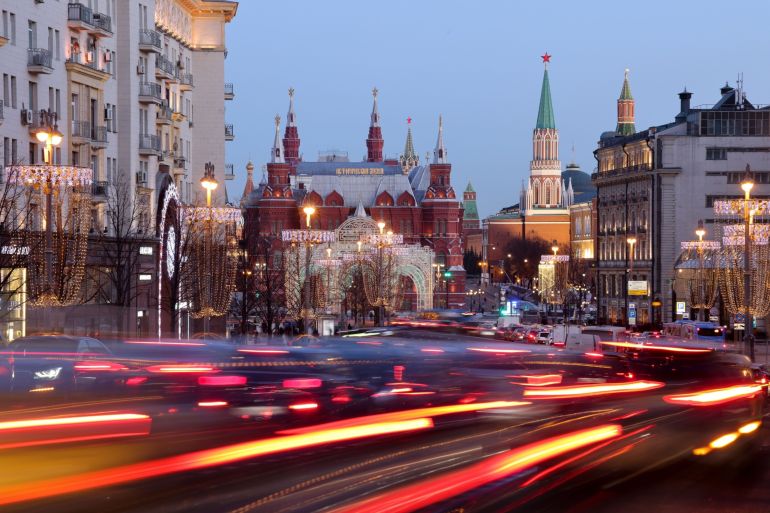 |
| Image Source: Al-Jazeera |
(Officials say the restrictions have boosted domestic industrial production)
The Kremlin
says Russia's economy has adapted well to Western sanctions and Moscow does not
fear the prospect of more such measures.
On February 25,
2022, a day after Russia launched a full-scale invasion of Ukraine, the
European Union introduced a wide range of sanctions intended to send a clear
signal to Moscow that war would have dire consequences.
The bloc has
imposed 11 sanctions packages to date and said last week it would work to
address loopholes in existing measures. EU officials have suggested the
sanctions could last for years.
Kremlin
spokesman Dmitry Peskov told reporters on Tuesday that Russia has been living
under the sanctions regime for a long time, decades, and we have adapted it
quite a bit, so a five- to 10-year Time does not scare us.
Russia said the
sanctions boosted its domestic economy and industrial output.
Some observers
argued that the sanctions had stalled and failed to stop Russia from waging war
against Ukraine. According to a report by Norway-based risk consultancy Kursk –
which analyzed customs data from 12 EU countries, Norway, Britain, the US and
Japan – export sanctions on Russia cost around 8 billion euros ($8.5 billion).
) was the amount of In 2022
Western
countries and Kiev say that Moscow is engaged in a war of unprovoked aggression
in Ukraine. Moscow alleges that Western powers are trying to use Ukraine to
undermine Russia's own security.
Analysis
The Kremlin's claim that the Russian economy is ready to deal with further sanctions is supported by recent data, which shows that the economy has been recovering from the initial shock of the sanctions imposed in the wake of the invasion of Ukraine. In the first half of 2023, GDP growth was observed in almost all key sectors of Russian industry.
However, the Russian economy is still facing a number of challenges, including high inflation, supply chain disruptions, and a shortage of skilled workers. The sanctions have also had a negative impact on Russia's long-term growth prospects, as they have made it more difficult for Russian companies to access foreign investment and technology.
The IMF has forecast that the Russian economy will grow by 0.7% in 2023, but this is significantly lower than the 3% growth that was forecast before the invasion of Ukraine. The World Bank has also revised down its growth forecast for Russia, from 1.6% to 0.2%.
Overall, the impact of the Western sanctions on the Russian economy has been significant, but it is too early to say whether they will be successful in achieving their goal of forcing Russia to withdraw from Ukraine.
Here are some more recent information on the impact of Western sanctions on the Russian economy:
- In August 2023, the Russian Central Bank said that the Russian economy had avoided a recession in the first half of the year, but that growth was likely to be slow in the second half.
- In September 2023, the IMF said that the Russian economy was "more resilient than expected" in the face of sanctions, but that it was still facing a number of challenges, including high inflation and a shortage of skilled workers.
- In October 2023, the World Bank said that the Russian economy was likely to grow by 0.2% in 2023, but that this was subject to a number of risks, including the possibility of further sanctions and a prolonged war in Ukraine.
It is important
to note that the impact of the Western sanctions on the Russian economy is
still being assessed, and it is too early to say what the long-term effects
will be.
(Courtesy: Al-Jazeera)










0 Comments